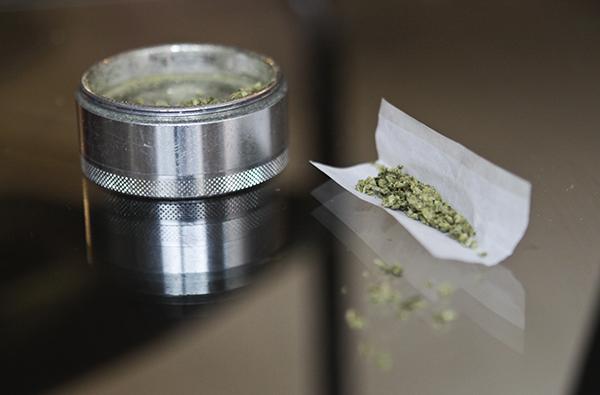
The number of students expelled or suspended for drug use is at its lowest level in four years despite an overall uptick in violations ranging from cocaine possession to prescription drug misuse this year.
No students have been expelled for drug violations this year, and just six have been suspended. Meanwhile, GW’s disciplinary office has recorded 122 violations – 36 more than last year.
University officials said they have not changed the penalties for drug use, and all penalties are decided on a case-by-case basis.
Last year, GW tallied 86 drug violations, which resulted in 15 suspensions or expulsions.
University Police Department Chief Kevin Hay said the number of reported drug violations varies in part because of the availability of drugs on campus, but did not have a specific explanation for this year’s increase in violations.
Colleges nationwide have relaxed their sanctions for drug use, said Chris Loschiavo, the director of the student conduct office at the University of Florida and the former president of the Association for Student Conduct Administration.
“That has been a national trend over the past few years, and it is possible that is why suspensions and expulsions have gone down,” Loschiavo said.
Loschiavo said experts have noticed a rise in abuse of prescription drugs like Adderall, though marijuana remains the most commonly used drug.

Students at GW this year have been caught with Adderall and other prescription pills, drug paraphernalia and cocaine, but Hay said marijuana is the “most commonly detected” drug on campus.
Ten violations have involved drugs other than marijuana this year, said Katie Porras, acting director of the Office of Student Rights and Responsibilities.
Frank LoMonte, executive director of the Student Press Law Center, said the number of drug violations at colleges will often fluctuate, but a sudden spike could be the result of campus police being more active.
“Common sense tells you it can’t possibly be right unless they did a massive drug round up on a one-time basis,” he said.
Most student arrests this year resulted from possession of marijuana and drug paraphernalia, according to the University crime log and details from UPD. In December, one student was also arrested after officers found marijuana in a bag that he had left on an Amtrak train.
While the number of drug offenses on campus has grown this year, the University has only recorded one violation involving more than one ounce of marijuana – compared to 10 last year. Students caught with more than one ounce of marijuana, or any quantity of another drug, could face suspension.
Students must pay a $50 fine the first time they are charged for possession or use of illegal drugs, according to the code of student conduct. Students pay $100 if they violate that rule again, while third offenses result in a disciplinary meeting to “determine the viability of the student’s remaining at the University.”
In March, D.C. Mayor Vincent Gray passed a law to decriminalize possession of up to one ounce of marijuana and instead charge violators a $25 fee, about the same as a parking ticket, though it will not change GW’s policies.
-Benjamin Kershner contributed reporting.








